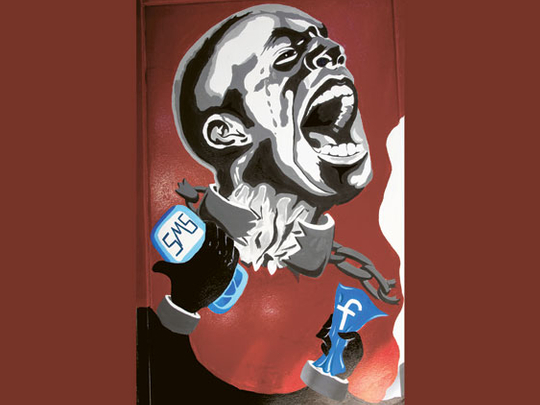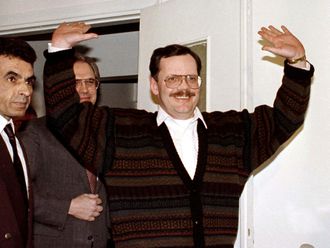
McLean, Virginia: In an anonymous industrial park in Virginia, in an unassuming brick building, the CIA is following tweets — up to 5 million a day.
At the agency's Open Source Centre, a team known affectionately as the "vengeful librarians" also pores over Facebook, newspapers, TV news channels, local radio stations, internet chat rooms — anything overseas that anyone can access and contribute to openly.
From Arabic to Mandarin Chinese, from an angry tweet to a thoughtful blog, the analysts gather the information, often in native tongue. They cross-reference it with the local newspaper or a clandestinely intercepted phone conversation. From there, they build a picture sought by the highest levels at the White House, giving a real-time peek, for example, at the mood of a region after the Navy Seal raid that killed Osama Bin Laden.
Yes, they saw the uprising in Egypt coming; they just didn't know exactly when revolution might hit, said the centre's director, Doug Naquin.
Prediction
The centre already had "predicted that social media in places like Egypt could be a game-changer and a threat to the regime", he said.
The CIA facility was set up in response to a recommendation by the 9/11 Commission, with its first priority to focus on counter-terrorism and counter-proliferation. But its several hundred analysts — the actual number is classified — track a broad range, from Chinese internet access to the mood on the street in Pakistan.
While most are based in Virginia, the analysts also are scattered throughout US embassies worldwide to get a step closer to the pulse of their subjects.
The most successful analysts, Naquin said, are something like the heroine of the crime novel The Girl With the Dragon Tattoo, a quirky, irreverent computer hacker who "knows how to find stuff other people don't know exists".
Those with a masters' degree in library science and multiple languages, especially those who grew up speaking another language, "make a powerful open source officer", Naquin said. The centre had started focusing on social media after watching the Twitter-sphere rock the Iranian regime during the Green Revolution of 2009, when thousands protested the results of the elections that put Iranian President Mahmoud Ahmadinejad back in power. "Farsi was the third largest presence in social media blogs at the time on the web," Naquin said.
Analysing accuracy
The centre is also in the process of comparing its social media results with the track record of polling organisations, trying to see which produces more accurate results, Naquin said.
"We do what we can to caveat that we may be getting an overrepresentation of the urban elite," said Naquin, acknowledging that only a small slice of the population in many areas they are monitoring has access to computers and internet. But he points out that access to social media sites via mobile phones is growing in areas like Africa, meaning a "wider portion of the population than you might expect is sounding off and holding forth than it might appear."












